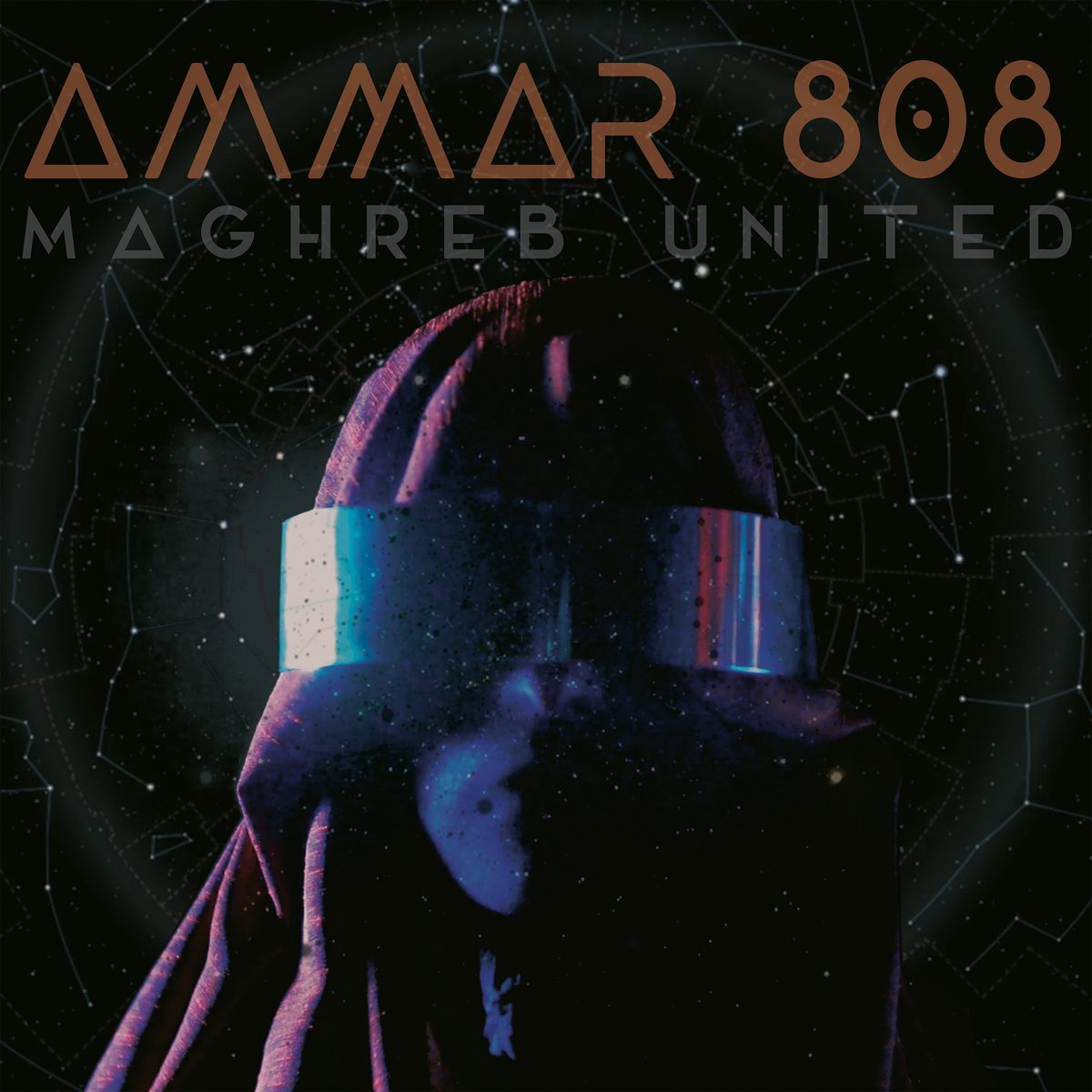Known for its astonishing desertic landscapes and its rich cultural history, the Maghreb is a vast region in North Africa that was once ruled by Berber dynasties under one reign. Nowadays, this land is divided between Algeria, Libya, Tunisia, Morocco, Mauritania and Western Sahara, but nevertheless, their differences are strongly tied together by their common heritage. It’s with this in mind, that Tunisian composer Sofyann Ben Youssef started the musical journey that eventually became Maghreb United, his first album under the moniker Ammar 808, in which he explores and re-imagines traditional pan-Maghreb music, projecting it straight into the future thanks to the sounds of his Roland TR808.
Sounding intriguing from the very first bars, this album is a look at the past to create a new future: “The past is a collective heritage,” Ben Youssef says. “The project started by searching for something to link the sense of what has been with what will be.” His explorations of traditional music of raï, gnawa and targ cultures led him to travel a lot through the region and work with local singers and musicians to record the traditional tunes he later reworked with the iconic sound of his drum-machine. Algerian singer Sofiane Saidi is the first voice we hear in Maghreb United; his deep raw timbre meets perfectly the dirty bassline and galloping rhythm of “Degdega”.
With the next track “Sidi Kommi”, the sound shifts neatly into melodies reminiscent of the desert blues of Bombino and Tinariwen; the faster tempo and the relentless singing of Mehdi Nassouli create a groove that’s deeply hypnotic, a typical feature of gnawa music, traditionally accompanying religious and trance-inducing rituals. As we move on, the music brings us deeper and deeper into the sounds of Maghreb, always accompanied by deep and powerful 808 basslines, that at times suddenly transform the track into an old-school rave party at the heart of the Sahara. Ben Youssef often uses the bass like a kick drum, propelling the rhythm of the track alongside claps and percussions here and there, like in track number six “Aleech Taadini”, featuring the voice of Tunisian singer Cheb Hassen Tej.
In the internet era, where music seems to be getting more and more similar every day, it’s comforting to find artists whose focus is giving a new, forward-looking identity to their traditional music. Ammar 808 is clearly one of those, and he does so uncompromisingly and daringly, pairing gumbos and okra bagpipes with the one drum-machine that revolutionised music almost 40 years ago.
As much as it is pivotal to the concept of the album, the tie with the traditional songs also seems to be holding back the potential of Ben Youssef’s intuition, rather than expressing it to the fullest. Maghreb United is surely the first step in the development of the future sound of Maghreb, a revolutionary step that we’re looking forward to watching evolve.


